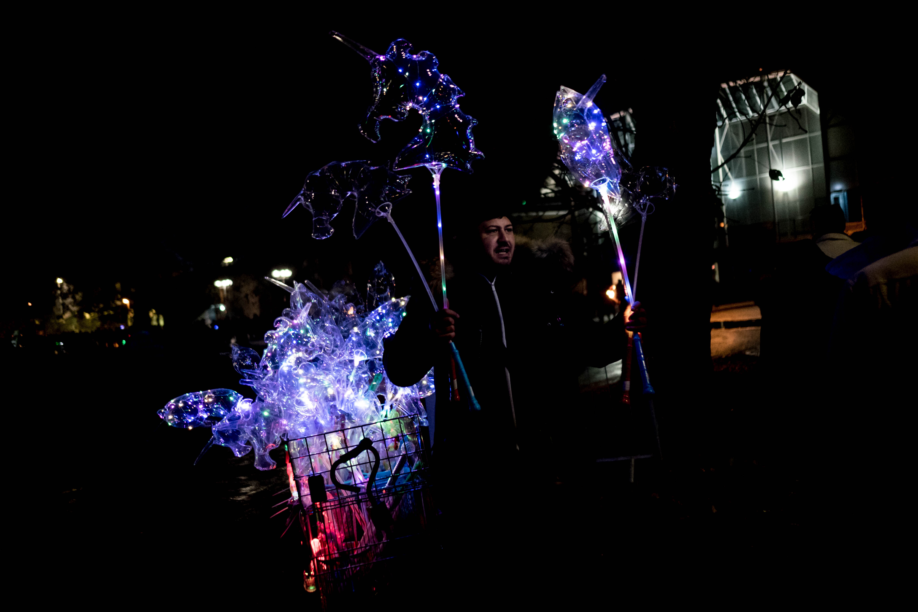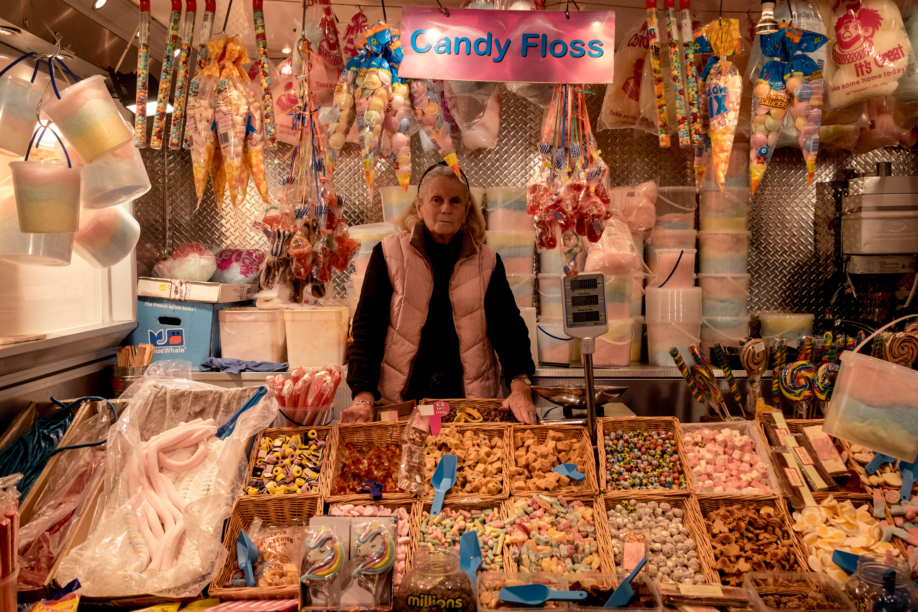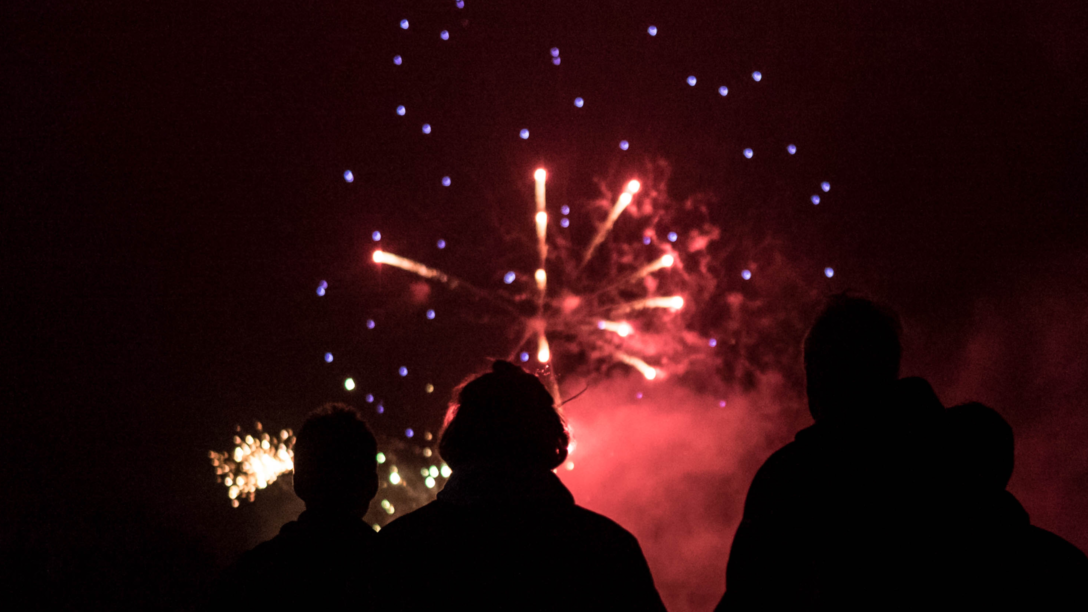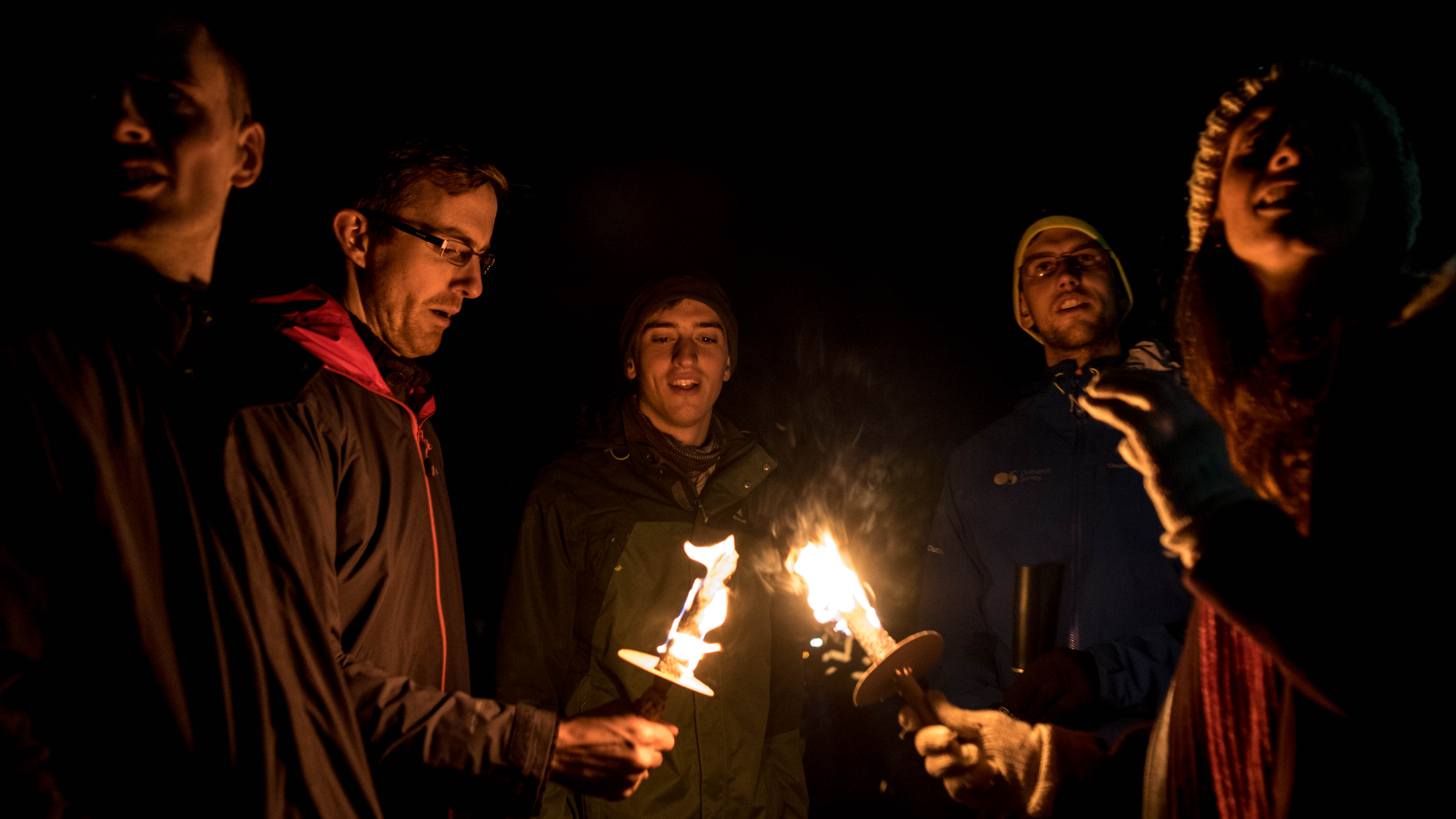It was still early into a November afternoon, but with autumn having set in, night had fallen and time moved to a different pace. In the darkness, through the cobbled high street of Winchester, swarms of people bore aloft flaming torches in the grand old tradition of the city’s annual Bonfire Night ceremony. Though it had been 15 years since I’d last been in England during the autumn months, this was a world I felt I knew.
The older a person gets the more they lose control over how they find their way home again. Sometimes you wait and wait but the memories that are meant to guide you never come. Sometimes they just disappear.. Then there are the moments where the signposts hit you suddenly, through an old song played on the radio, or seeing the clothes you used to wear coming back into style, or something as simple as the warm buttery smell of fried toast. This is how it was for me with Bonfire Night.
Growing up in South London in a Muslim immigrant household, holidays were not exactly part of the fabric of our childhood. They were either too Christian or too pagan, or in the case of Halloween too Satanic, and as for pancake day, nobody in our home even knew what a pancake was. Christmas was always the hardest one to deal with. Decorations went up. Jingles formed a low-grade soundtrack to the pageantry of the season. The world fluttered in a Dionysian frenzy and once it was over I was left to confront endless chatter about presents and stockings on the return to school. All I could do was resent it. I hated that my family was different, that the walls of our home were undecorated, and that dinner on Christmas day would be a regular Pakistani meal.
But Christmas was far too big to stay outside the grey confines of our non-celebrations and even though I dreaded its arrival, I grudgingly enjoyed the pieces of it that spilled over the boundaries of my otherness. I didn’t have to go to school, I could still buy Christmasy things like Santa shaped chocolates, and then of course there was the TV and the annual ritual of spending days singing the words to ‘Walking in The Air’ after having watched animated classic, The Snowman.
Bonfire Night or Guy Fawkes Day or November 5th, to give it its various names, however, was different. It was the one holiday in the year our parents let us be a part of. The irony of finding some narrow route to belonging in their new homeland through the acts of a traitor who, had his plot succeeded, would have blown up the ruling protestant king of England, went unconsidered. As long as there were no religious barriers, and there were none that they could see, everything was fine.

The first Bonfire Night I attended was organised by my primary school. If truth be told, it was a bit of a dull affair comprised of a tepid bonfire and a smattering of meagerly adorned food stalls, but at one point a stray firework whizzed between the legs of my cousin Raza and our night was made. There was nothing about it I didn’t love, but mostly the sense that all the disparate parts of myself were able to come together and be seen.
That feeling didn’t last long. The next year we went for the fireworks display at our local park. It was a much louder and more extravagant event, something more in line with what an eight-year-old kid would enjoy. There were rides for starters and multiple rows of carnival games where you could win anything from teddy bears to an electronic toy car. The fireworks were amazing too. It was perfect. Every kid’s dream. Or was it? I wasn’t so sure. I found myself too forcefully focused on all the things I should be doing, the stuff the other kids at school would probably do. I asked my mum to buy me a toffee apple and then threw it away because I didn’t like the way it tasted. I asked for a sparkler and then found it boring. I still enjoyed the night but the forced rituals were not for me and did not fit in with the person I was on my way to becoming.
In the years to come, sometimes we went out for bonfire night and sometimes we didn’t. It grew to matter less. My life expanded. The old vulnerabilities were still there, but I was better able to distinguish between the unfinished textures of myself that were true, and the ones I only wanted to be true. The fact that over time I became comfortable enough not to go, or to go on my own terms was a sign that I had stopped looking for the mythical wholeness within myself. I was never going to have a complete identity. I had come to accept that. I think I had anyway. Perhaps it didn’t matter, the value of who I was would lie in the spaces in between.

As the evening grew old, the cold began to bite and I decided to return to the home of my brother where I was staying. On the way back I stopped at a confectionary truck that had set up on the site of the bonfire. Dangling above the display were large packets of flying saucers and giant rock dummies. Seeing them made me break out into a faint smile. My mother would never let me buy these. She would tell me they were a waste of money and would likely end up leading to a sore throat. I always doubted her and would argue for ages but she would always win. Yet now life had gone on long enough and I was free to make my own choices. I took one more look at them and then walked away. Maybe my mother had always been right, or maybe I was just older, or maybe I was finally myself.






